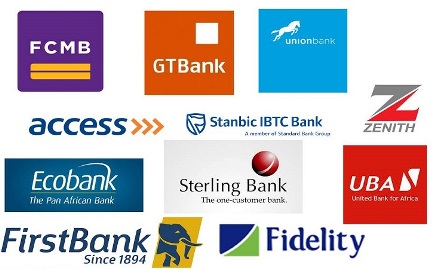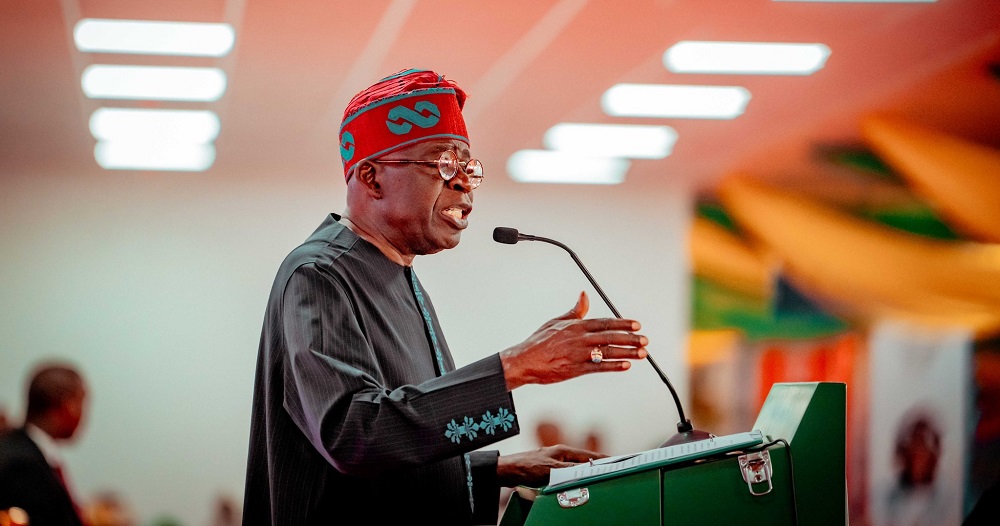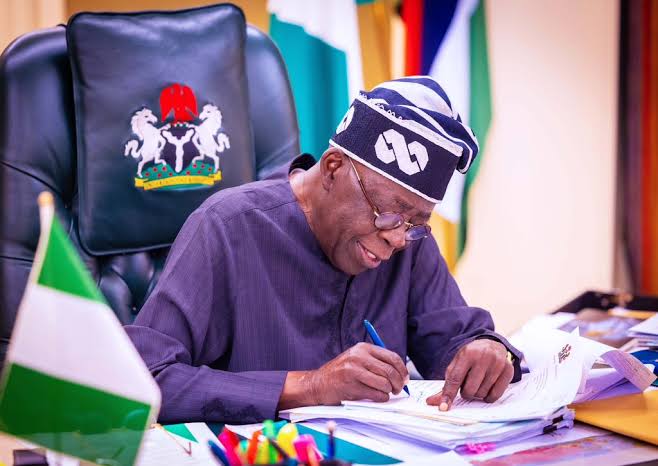News
Just in: Despite hunger, FIRS Orders all Banks To Start Taking N50 Compulsory Electronic Money Transfer

…levy On Every N10,000 Transfer
Despite hunger in Nigeria, the Federal Inland Revenue Service (FIRS) has directed all banks in Nigeria to enforce a mandatory N50 levy on electronic money transfers exceeding ₦10,000.
This directive aligns with the provisions of the Finance Act, which introduced the Electronic Money Transfer Levy (EMTL) as part of the government’s revenue generation efforts.
The EMTL is a fixed charge applied to qualifying transactions, and its implementation is expected to boost federal and state government revenues.
According to the FIRS, the levy is applicable to all forms of electronic transfers, including internet banking, mobile money platforms, and Point-of-Sale (POS) transactions.
The responsibility for collecting and remitting the levy lies with financial institutions, which must ensure compliance with the directive.
What Does This Mean for Bank Customers?
For every electronic transfer exceeding ₦10,000, bank customers will now pay an additional ₦50. For instance, if a customer transfers ₦20,000, a total of ₦20,050 will be debited from their account. This levy is separate from any service fees charged by banks for processing transactions.
Reactions from Stakeholders
The directive has sparked mixed reactions among Nigerians. While some view it as a minor inconvenience, others see it as an additional financial burden in a country already grappling with economic challenges. Critics argue that the levy could discourage cashless transactions, contradicting the Central Bank of Nigeria’s (CBN) drive for a cashless economy.
However, the FIRS maintains that the levy is essential for funding critical public services and infrastructure projects. “This levy is not new. It is part of the Finance Act, and the banks are simply implementing what has already been approved by law,” an FIRS spokesperson stated.
Implications for the Economy
The introduction of the EMTL is expected to generate significant revenue for the government. Under the Finance Act, revenue collected from the levy is shared between the federal and state governments, with 15% allocated to the federal government and 85% to the states.
Economists argue that while the levy could enhance government revenue, its success depends on proper management and transparency in fund utilization. There are also concerns about the potential impact on the informal sector, which relies heavily on electronic transfers for business transactions.
As the FIRS pushes for the implementation of the N50 levy on electronic money transfers, Nigerians are adjusting to the reality of an additional cost on their financial transactions. While the policy aims to increase government revenue, its long-term impact on the cashless economy and financial inclusion remains to be seen.
Bank customers are advised to stay informed about how the levy affects their transactions and to factor in the additional charge when making transfers.
News
Netizens Slam Lawmakers As They Sing Tinubu’s Anthem At Budget Presentation

Netizens slam lawmakers after they were sighted singing “On Your Mandate We Shall Stand” as President Bola Ahmed Tinubu took the stage to present the 2025 national budget.
The incident, which is in a viral video clip, showed the lawmakers singing the song, which has become synonymous with Tinubu’s political supporters.
The gesture, however, has ignited outrage among Nigerians, who questioned its appropriateness in light of the country’s current economic challenges.
Many critics took to social media to express their disappointment, describing the act as insensitive and unprofessional. They argued that lawmakers should focus on addressing pressing national issues, such as a inflation, unemployment, and hardship, rather than engaging in political theatrics with Tinubu during a crucial budget session.
“What kind of leadership did we vote for? Instead of scrutinizing the budget and ensuring accountability, they’re busy singing praises,” one commenter wrote.
Others questioned the mandate the lawmakers you were celebrating, with some accusing them of being disconnected from the realities faced by ordinary Nigerians. “What mandate are they standing on when the citizens are struggling to make ends meet?” another critic remarked.
The 2025 budget presentation, meant to outline the government’s financial plans and priorities for the year, has now been overshadowed by this controversy, with many calling for lawmakers to prioritize governance over partisan loyalty.
Read some netizens’ reactions as lawmakers sings for Tinubu during budget presentation;
@emeka: This is really problematic 🤣🤣
@agwai: This is the reason the president don’t do well in Nigeria because the people around him feed him with lies. And praise him when things is not good. Just clapping
@abyusuf: The lawmaker’s rendition of “On Your Mandate” should serve as a wake-up call, reminding us that it’s time to take a closer look at the people we’ve elected to represent us.
@danleety: I now believe there’s serious disconnect between the lawmakers and their constituents.
News
Tax Reforms: Those criticising it lack knowledge -Akpabio

The Senate President, Godswill Akpabio, has flayed critics of President Bola Tinubu’s tax reforms as lacking an understanding of what the initiatives were truly about.
Akpabio disclosed this during his remarks at the presentation of the 2025 budget estimate by President Tinubu to a joint session of the National Assembly on Wednesday.
He said, “Your Excellency, we commend you on your groundbreaking tax reform initiative. The four tax reform bills—the Joint Revenue Board of Nigeria (Establishment) Bill, 2024; Nigeria Revenue Service (Establishment) Bill, 2024; Nigeria Tax Administration Bill, 2024; and Nigeria Tax Bill, 2024—represent a monumental shift in our fiscal landscape.
It is disheartening that those who have not taken the time to understand these bills are the loudest critics. I urge all Nigerians, especially those in public office, to engage with these vital reforms thoughtfully. This initiative marks the first comprehensive tax reform since Nigeria’s independence, presenting a transformative opportunity for rejuvenating small and medium enterprises and enhancing the livelihoods of ordinary Nigerians.
“These reforms will not only improve Nigeria’s revenue profile but also create a more conducive and internationally competitive business environment, transforming our tax system to support sustainable development.”
News
Tinubu presents N47.9trn 2025 Resurrection Budget

Defence and insecurity , infrastructure, health and education were some of the sectors with high allocations in the N47.9tn Budget Proposal presented by President Bola Tinubu before a joint session of the National Assembly on Wednesday afternoon.
“It is with great pleasure that I lay before this distinguished joint session of the National Assembly, the 2025 Budget of the National Assembly of Nigeria titled, ‘The Resurrection Budget’ security peace, building prosperity,” Tinubu said as he concluded his 30-minute speech at 1:10pm on Wednesday.
Earlier in his presentation, the President listed some of the highlights of the budget as defence and security – N4.91tn, infrastructure – N4.06tn, health – N2.4tn, education – N3.5tn, among others.
He expressed commitment to economic renewal, thanking all Nigerians for embarking on the journey of reform and transformation in the last 18 months together.
The President said the economy is responding to stimulus and that his government would continue to take the right steps for economic progress. “The reforms yielding results, no reversals,” he said.
Tinubu stressed that food security is non-negotiable, adding that the government is taking steps to ensure Nigerians feed and not go to bed hungry.
Tinubu said, “Our 2025 is not just another statement of projected government revenue and expenditure; it is one that calls for action.
It is disheartening that those who have not taken the time to understand these bills are the loudest critics. I urge all Nigerians, especially those in public office, to engage with these vital reforms thoughtfully. This initiative marks the first comprehensive tax reform since Nigeria’s independence, presenting a transformative opportunity for rejuvenating small and medium enterprises and enhancing the livelihoods of ordinary Nigerians.
“These reforms will not only improve Nigeria’s revenue profile but also create a more conducive and internationally competitive business environment, transforming our tax system to support sustainable development.”
-

 News24 hours ago
News24 hours agoN141bn Agreements: Reps to Probe Non-Delivery of Tractors, Harvesters
-

 News23 hours ago
News23 hours agoConstitutional Breach: Reps invite CDS, COAS
-

 Sports20 hours ago
Sports20 hours agoHumility, focus fetched my son CAF Player of the Year award – Lookman’s dad
-

 News20 hours ago
News20 hours agoFG endorses N30 billion for 30 Fed Universities of Agric to begin mechanized farming
-

 News20 hours ago
News20 hours agoSAD! Youth Corps member slumps, dies in Orientation camp
-

 News15 hours ago
News15 hours agoInsecurity : Nigerians spent N2.2trn as payment for ransom in one year -NBS
-

 News10 hours ago
News10 hours agoThree to die by hanging for killing Delta monarch
-

 Sports10 hours ago
Sports10 hours agoCAF Awards 2024: Full List of Winners

















